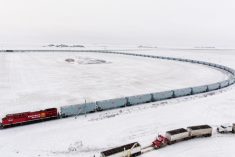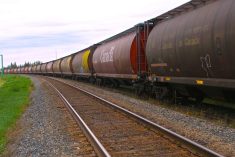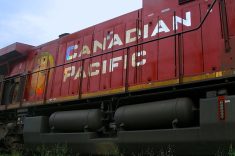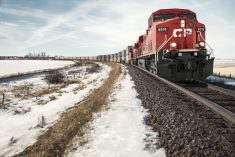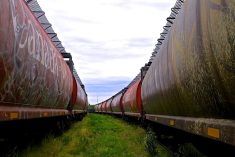A lockout has begun at Canadian Pacific Railway affecting its 3,000-odd unionized engineers, conductors and train and yard service staff, effectively shutting down CP service.
“The work stoppage has begun, but CP and (the Teamsters Canada Rail Conference) are still at the table with federal mediators,” federal Labour Minister Seamus O’Regan said in a statement just after midnight ET Sunday.
Negotiators from the company and union “are working through the night,” he added, and the government is “monitoring the situation closely and expect the parties to keep working until they reach an agreement.”
Read Also
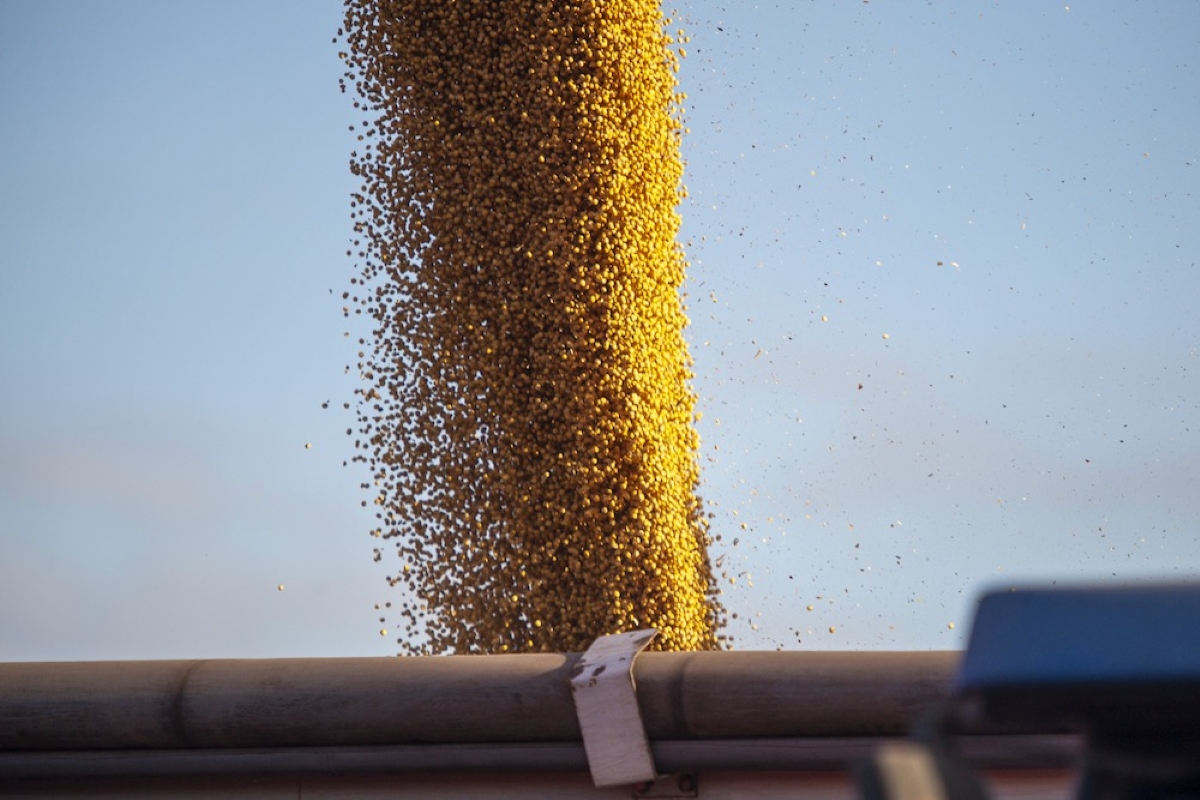
Brazil to reap record soy crop in 2025/2026, increase exports
Brazil’s Conab said the country will reap a record soybean crop of 177.6 million tons in the 2025/2026 harvest year, according to data released on Thursday.
O’Regan arrived in CP’s home town of Calgary earlier Saturday, saying in a video statement on Twitter that “notice of a work stoppage could not have come at a worse time.”
Canada’s supply chains, he said, “are still reeling from COVID-19, and the Russian invasion of Ukraine has placed enormous pressure on oil markets and grain supplies” — and both commodities “rely heavily on rail” in Canada.
To “ranchers concerned about feeding their cattle here in the Prairies” as well as “farmers worried about the window to fertilize their crop” as well as manufacturers, O’Regan said, “I hear you loud and clear.”
The parties in the labour dispute, he said, “have an enormous responsibility to all Canadians to negotiate an agreement that protects the supply chains that Canadians depend on.”
The unionized employees voted in February in favour of a strike that could have begun Wednesday (March 16) at the earliest. CP served the union with 72 hours’ lockout notice that day. CP on its website has also since posted a copy of a notice dated March 16 from the union of its intent to strike at the same time Sunday.
CP CEO Keith Creel said March 16 that the company “simply cannot prolong for weeks or months the uncertainty associated with a potential labour disruption.”
CP said on its website earlier this week it had “commenced its work stoppage contingency plan and will work closely with customers to achieve a smooth, efficient and safe wind-down of Canadian operations.”
“Shortly before the lockout was announced, the Teamsters union expressed its desire to continue bargaining,” the union said in a separate release late Saturday, minutes before the lockout took effect. “Unfortunately, the employer chose to put the Canadian supply chain and tens of thousands of jobs at risk.”
Teamsters spokesperson Dave Fulton, in Saturday’s release, said CP management “must be taken to task for this situation. They set the deadline for a lockout to happen tonight, when we were willing to pursue negotiations. Even more so, they then moved the goalpost when it came time to discuss the terms of final and binding arbitration.”
The Teamsters, he said, were “willing to explore” such arbitration, but “were unable to reach an agreement with the employer.”
Wages and pensions remain “major stumbling blocks,” the union said Saturday, but “working conditions that call into question the railway’s capacity to recruit and retain workforce members” are also at issue.
Effects of a railway work stoppage on Prairie grain traffic are well known, but a spring lockout will also affect traffic in fertilizer. Last summer’s drought in Western Canada has also left livestock feeders in the region dependent on CP to bring corn up from the U.S. by rail.
“We have communicated with both negotiating parties and government representatives the absolute need to have trains continue moving. Otherwise we will have an animal care emergency on our hands,” Canadian Cattlemen’s Association president Bob Lowe said Friday. — Glacier FarmMedia Network







